
Reptiles
In Australia, a valid reptile licence is required to keep any of the reptiles listed on this page. If you’re unsure about the requirements or need help applying, our friendly team at Toni’s Pet Station is here to assist.
We can guide you through the process and help you get everything you need in-store to ensure your setup is safe, compliant, and comfortable for your new reptile companion.
-
Sale!

Zebra Jaguar Python
Original price was: $750.00.$450.00Current price is: $450.00. -
Sale!
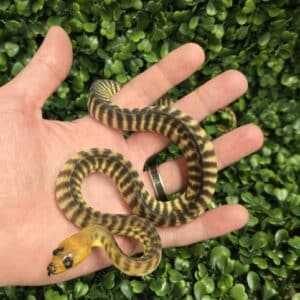
Woma Python – Stunning and Docile Australian Snake
Original price was: $695.00.$550.00Current price is: $550.00. -
Sale!

Stimson Pythons
Original price was: $595.00.$476.00Current price is: $476.00. -
Sale!

Spotted Pythons
Original price was: $395.00.$316.00Current price is: $316.00. -

Short Neck Turtle
-

Saw-Shelled Turtles
-

Popular Bearded Dragon (Pogona vitticeps)
$300.00 -
Sale!
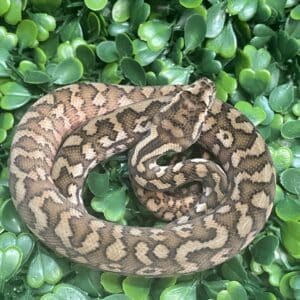
Mixed Carpet Python
Original price was: $500.00.$350.00Current price is: $350.00. -
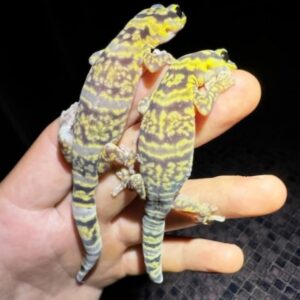
Marbled Velvet Gecko (Oedura Marmorata)
$300.00 -
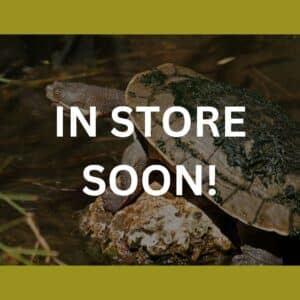
Macquarie River Turtles
-

Long Neck Turtle
-

Kreffts River Turtles – Hardy and Fascinating Freshwater Companions
$175.00 -
Sale!

Jungle Pythons
Original price was: $595.00.$476.00Current price is: $476.00. -
Sale!

Jungle Jaguar Python
Original price was: $600.00.$480.00Current price is: $480.00. -
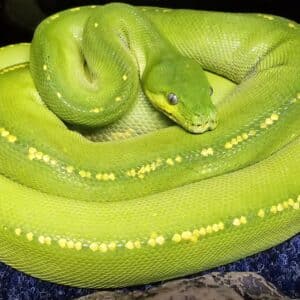
Green Tree Python – Stunning Arboreal Reptile
-

Baby Rainforest Scorpions
$12.95
Selling Reptiles in Queensland: What You Need to Know
Reptiles have become increasingly popular as pets in Queensland, thanks to their fascinating behaviours, unique appearances, and the rewarding experience of caring for them. However, selling reptiles in Queensland comes with specific responsibilities and regulations to ensure the welfare of these animals and compliance with state laws.
Understanding Reptile Sales Regulations
In Queensland, the sale of reptiles is strictly governed by the Nature Conservation Act 1992. Only licensed individuals and businesses can sell reptiles, ensuring that the animals come from ethical and legal sources. Sellers must hold a Reptile Licence or be an approved wildlife dealer, and all transactions must be documented. The licence not only protects the reptiles but also ensures that buyers are educated about their responsibilities.
Certain species of reptiles, such as snakes, lizards, and turtles, require buyers to have the appropriate permits. Sellers are required to verify the buyer’s licence and provide a record of the sale, including the species and identification details of the reptile.
It is illegal to capture wild reptiles for sale or keep them as pets. All reptiles sold in Queensland must be captive-bred, ensuring the sustainability of wild populations and reducing stress on natural ecosystems.
Safety Information for Handling and Keeping Reptiles
Reptiles require specific care to thrive in captivity, and their keepers must prioritise safety at all times—for both the reptile and themselves.
1.Handling Reptiles
•Always wash your hands before and after handling reptiles to prevent the spread of bacteria such as Salmonella, which reptiles naturally carry.
•Handle reptiles gently and avoid sudden movements to reduce stress and the risk of defensive behaviour.
•Use appropriate tools like hooks or gloves for larger or more defensive species, especially snakes.
2.Housing and Equipment
•Reptiles need secure enclosures to prevent escape and ensure safety. Enclosures should be designed to suit the specific species, with appropriate heating, lighting, and humidity.
•Avoid overcrowding, as this can lead to stress and aggression among reptiles.
•Regularly inspect and maintain enclosures to ensure there are no gaps or hazards.
3.Feeding and Nutrition
•Offer species-appropriate diets, as incorrect feeding can lead to health issues. For example, snakes require whole prey, while herbivorous reptiles need a variety of leafy greens and vegetables.
•Feed reptiles with tools like tongs to minimise direct contact during feeding time.
4.Health and Veterinary Care
•Monitor your reptile’s behaviour and physical condition for signs of illness, such as lethargy, loss of appetite, or abnormal shedding.
•Only seek veterinary care from professionals experienced with reptiles.
General Information About Keeping Pet Reptile Species
Keeping cold-blooded animals can be incredibly rewarding for those who are committed to understanding their specific needs. These unique creatures have highly specialised care requirements that vary widely depending on species, making thorough research an essential first step before bringing one home. From small, terrestrial geckos to large, semi-aquatic turtles, each animal comes with its own environmental, dietary, and behavioural considerations.
1. Environment and Temperature Regulation
Most reptile species are ectothermic, meaning they cannot regulate their body temperature internally. Instead, they depend entirely on the heat and light provided in their enclosure. It’s critical to establish a temperature gradient — a warm basking area and a cooler retreat zone — so the animal can self-regulate as needed.
UVB lighting is also essential for many species, including lizards and turtles, as it supports the synthesis of vitamin D3. Without this, they may be unable to properly metabolise calcium, leading to serious health issues such as metabolic bone disease. Inadequate lighting and temperature control are among the most common causes of health complications in captive environments.
2. Space, Habitat Design, and Enrichment
A pet’s enclosure should mimic its natural habitat as closely as possible. This includes the appropriate substrate, temperature and humidity levels, and structural features like logs, rocks, and foliage. For arboreal species, vertical space is crucial, while ground-dwellers need broad, secure flooring with plenty of hiding spots.
Enrichment is not just for mammals — many cold-blooded pets benefit greatly from a dynamic environment. Live plants, climbing structures, tunnels, and water features can encourage natural behaviours like hunting, basking, digging, and hiding. Regular rearrangement of the enclosure or the introduction of safe new elements can also stimulate curiosity and reduce stress.
3. Commitment, Care, and Long-Term Responsibility
Many cold-blooded pets can live for decades under the right conditions. Species like snakes and turtles, for example, often live 20 years or more, and some even surpass 40 with proper care. This makes them a long-term commitment, not a short-term hobby. Owners must be prepared not only for the animal’s daily needs, but also for seasonal changes in behaviour, such as brumation (a form of dormancy), molting, or breeding cycles.
Regular enclosure cleaning is essential to prevent the buildup of waste, bacteria, and mould, all of which can lead to respiratory infections or skin issues. Water dishes must be cleaned and refilled daily, and uneaten food should be removed promptly. Consistent observation is also key — subtle changes in appetite, movement, or skin condition may be the only early signs of illness.
Keeping one of these fascinating animals can be incredibly fulfilling, but it demands preparation, patience, and a willingness to continuously learn. With the right environment, diet, and enrichment, your cold-blooded companion can live a long, healthy life — and offer you a truly unique pet-keeping experience.
Ethical Considerations
Before purchasing reptiles, consider the ethical implications. Reptiles are not traditional pets and require specialised care. We do our best to educate buyers and ensure they understand the responsibility involved.
In Queensland, it’s essential to strike a balance between enjoying these incredible creatures as pets and respecting their unique needs and role in the ecosystem. By following legal guidelines, prioritising safety, and maintaining high standards of care, we can ensure a positive experience for both reptiles and their keepers.
Refund Policy
Payment Options
Our Guarantee





















